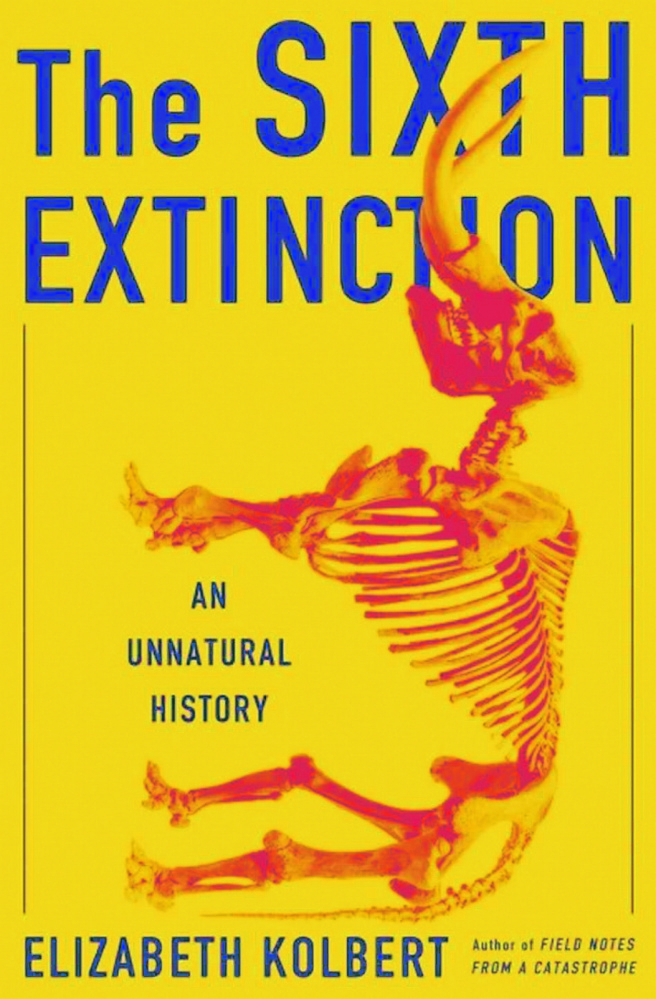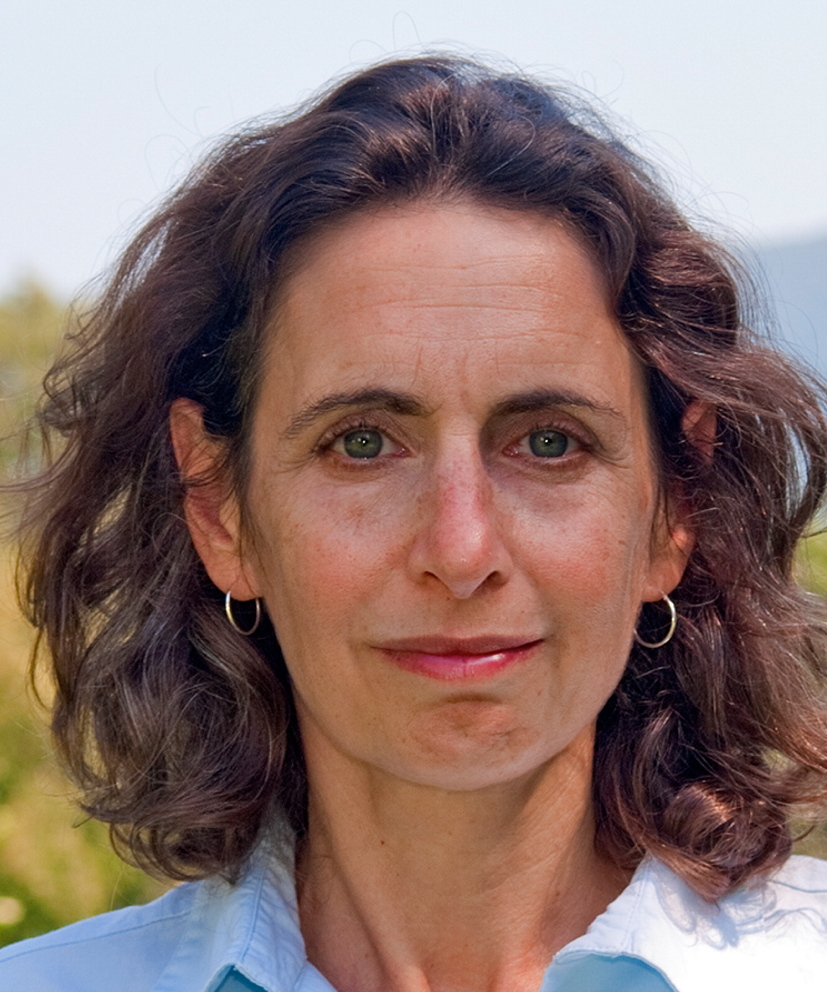Elizabeth Kolbert started her journalism career as a stringer for The New York Times and worked in the trenches there as a political reporter, but once she took a job at The New Yorker and made the environment her specialty, she became an exemplar of explanatory journalism. Her books and articles have won every conceivable journalism and science-writing award.
Good thing she has her bona fides lined up, because her new book, “The Sixth Extinction” (Henry Holt, 319 pp., $28) is sure to cause a big-time dust-up. Kolbert makes a compelling case that the earth is in the middle of a sixth mass extinction, and the cause isn’t any natural act. Man is the culprit, and the pace of species die-off is accelerating at a rate unprecedented in the history of life on earth.
From massive bat die-offs in the Northeast to the degradation of the Great Barrier Reef, “The Sixth Extinction” sounds a drumroll of alarm. “It is estimated that one-third of all reef-building corals, a third of all freshwater mollusks, a third of sharks and rays, a quarter of all mammals, a fifth of all reptiles and a sixth of all birds are headed toward oblivion,” Kolbert writes.
Kolbert answered some questions about the book, the day before its publication.
Q: You started out as a political reporter. How did you evolve into an expert on earth sciences and natural history?
A: I was at The New York Times for a long while – I mostly covered politics. When I went to The New Yorker in 1999, I was supposed to cover politics there, but there’s a long tradition of environmental reporting at The New Yorker, and no one was covering it. I moved in to fill that space. Knowledge was gained, as all reporters do, by bothering a lot of people and talking to people who know what they’re talking about.
Q: You wrote about some of these issues in your 2006 book about global warming, “Field Notes from a Catastrophe.” What prompted your decision to write this follow-up?
A: Climate change is just one of the ways that people are changing the planet on a geological scale. Climate change is part of a bigger story.
Q: What has the reception to the book been in the scientific community, from people who study the issues you are writing about? (Some excerpts have run in The New Yorker.) What have you heard from the people you interviewed?
A: People who work in the field of conservation biology are quite desperate … They want to get this material out to a wider audience. So far the reaction of those guys has been great. I hope to stay friends with them; I would like to go back out with them. Even to the bat cave.
Q: It seemed that even the experts you featured were alarmed and surprised at the state of change in their chosen fields.
A: One of the things that astonishes people and horrifies them, if that’s the word, is that things are happening that they were taught couldn’t happen. With the bats, I quote this guy as saying, “If anyone had told me this could happen to the little brown bat, I wouldn’t have believed it.”
Q: Talk about one of the key dynamics in this process: that climate change is forcing movement among plants and animals at the same time man is creating barriers to that movement.
A: We know that in the climate changes of the past … we know by looking at the record that species can move. What worries scientists about what we’re doing now is that we’re changing the planet really, really fast … the world has been colder than now, but it hasn’t been this much warmer in a very long time.
We’re putting up barriers (urban development, deforestation, among others), and we’re changing the rules of the game, but we’re putting up a brick wall instead of an open playing field. What will happen as a result, to continue this metaphor, is that a lot of species will end up crashed up against that wall.
Q: In reporting “The Sixth Extinction,” which place did you go that you enjoyed the most?
A: Paradoxically, in the service of this subject matter, I got to go to the most extraordinary places on the planet. The Great Barrier Reef was incredible in the literal sense.
Q: Early reviews have compared this book to Rachel Carson’s 1962 indictment of pesticides, “Silent Spring.” Are you hopeful that it will have a similar impact on human behavior and public policy?
A: I think that everyone would be flattered to have their book compared to “Silent Spring.” The best one can hope for is to get people thinking. I don’t expect, as Rachel Carson was, to be called to testify before Congress anytime soon. Maybe not this Congress.
Q: Do you expect a lot of blowback?
A: I don’t really go after anyone (in particular) and say, “It’s your fault.” Pesticides were manufactured by a very small group of people. They orchestrated a vicious campaign against Rachel Carson. I spread the blame around a lot.
Send questions/comments to the editors.




Success. Please wait for the page to reload. If the page does not reload within 5 seconds, please refresh the page.
Enter your email and password to access comments.
Hi, to comment on stories you must . This profile is in addition to your subscription and website login.
Already have a commenting profile? .
Invalid username/password.
Please check your email to confirm and complete your registration.
Only subscribers are eligible to post comments. Please subscribe or login first for digital access. Here’s why.
Use the form below to reset your password. When you've submitted your account email, we will send an email with a reset code.